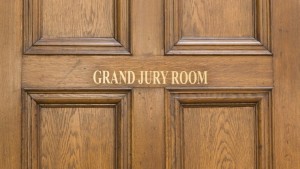
Earlier this year the North Dallas Gazette’s commentary Support for unarmed black shooting victims and cops are not mutually exclusive and our follow-up article discussed the need for more transparency in the grand jury process, particularly in cases involving police shootings. For nearly two years, across the country, repeatedly videos have emerged showing police killing unarmed black men, yet until recently none faced charges. This led to continued frustration resulting in protests across the country. Many in the African American community felt the grand jury system clearly favored the police, otherwise how could officers not even be charged for a crime in cases where videos would appear to clearly indicate the need for a trial to discuss the facts.
As the Texas legislature prepares to convene in January, they will have laws from around the country to consider as a model for reform in Texas. California in 2014 became the first state to pass grand jury reform law and earlier this year Georgia also revised their state laws related to grand juries and police involved shootings.
Last year California became the first state to remove the veil of grand jury secrecy in cases involving police shootings. Proponents of the keeping the records sealed on these cases suggest witnesses would not be willing to testify if their involvement was made public. However, opponents contend this has resulted in benefiting no one but the police officer facing charges.
Under the new law in California, the prosecutor will decide if the police officer will face criminal charges.
In Georgia HB 941, sponsored by four Republicans and one Democrat, earlier this year modified the laws related to juries in cases involving the police. Previously Georgia police officers facing possible indictment are allowed to sit in the grand jury room throughout the presentation of all evidence against them. They were also allowed to make a closing statement with no questions from the grand jury or prosecutors. Many felt this contributed to the fact more than 184 fatal police shootings since 2010 led to not one police officer being charged.
As outlined in NDG’s article Grand jury selection process could be a key to finding judicial equality, concerned Texans are hopeful in 2017, the state’s grand jury process will be opened for more transparency through legislative reform.




